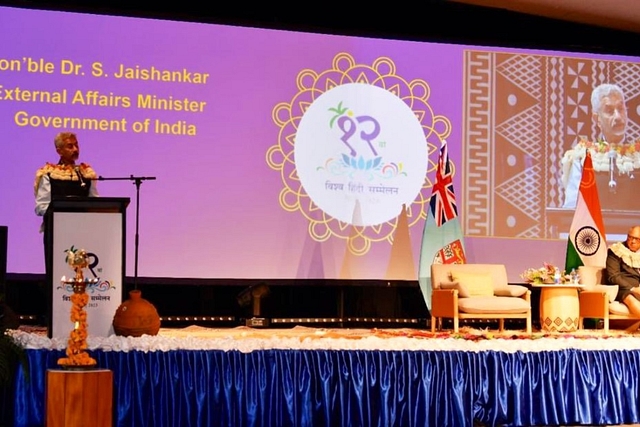
Era When Progress Was Equated With Westernisation Behind Us: EAM S Jaishankar At World Hindi Conference
Nadi (Fiji), Feb 15 (PTI) The era when progress was equated with westernisation is now behind us and many languages and traditions that were suppressed during the colonial era are once again finding a voice on the global stage, External Affairs Minister S Jaishankar said here on Wednesday.
Asserting that globalisation does not mean uniformity, Jaishakar while delivering the inaugural speech at the 12th World Hindi Conference at Denarau Convention Centre Nadi said in fact, it is only by understanding and accepting the diversity of our world that we can do it full justice.
'Indeed, that is the real meaning of a democratic world order', he added.
Noting that more countries gained independence over the last 75 years resulting in a rebalancing of the international system, Jaishankar said initially, this took an economic form, but soon enough, it developed a political facet as well.
'The trend in the global order is gradually creating greater multi-polarity and if it is to develop faster, it is essential that there is also cultural rebalancing', the minister said.
In such a situation, the world must be informed about all cultures and societies and one way of doing that is by broadening the teaching and usage of languages, including Hindi, he added.
'The era when progress was equated with westernisation is now behind us. Many languages and traditions that were suppressed during the colonial era are once again finding a voice on the global stage,' he said.
About 1200 Hindi scholars and writers from all over the world are participating in this conference, organised by the Government of Fiji and the Ministry of External Affairs of India.
A conference, such as this, that highlights the Hindi language sends a strong message in this regard. It signals language both as a bonding across societies as well as being an expression of identity, the minister added.
(This story has been published from a wire agency feed without any modifications to the text. Only the headline has been changed.)